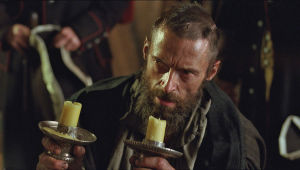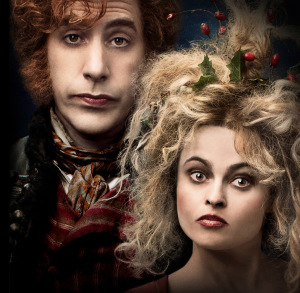A guest post by James Van Pelt.
By necessity, talking about “likes” explores only the reader’s internal landscape, at least if we talk about published work. Stephen King, for example, said, “Harry Potter is about confronting fears, finding inner strength and doing what is right in the face of adversity. Twilight is about how important it is to have a boyfriend.”
What a great snark! But Twilight has sold over 100 million copies. At least some people disagree with Stephen King.
If we’re talking about what we “like” in work that is published, and then compare it to unpublished work, the lines between the good and bad seem more distinguishable (but hardly written in stone—John Kennedy Toole’s Confederacy of Dunces was rejected numerous times during Toole’s lifetime, and when his mother tried marketing it after his death, it received seven more rejections before being published and then later won the Pulitzer Prize).
So discussions of what one likes best and what doesn’t work is seriously, severely, and irredeemably personal.
That said, I disliked Stephen R. Donaldson’s first book in the Thomas Covenant series, Lord Foul’s Bane. I don’t think it was the level of the prose that bothered me (because prose problems put me off in a hurry—I had the hardest time with Nicholas Sparks’ The Bridges of Madison County), but I really didn’t like Thomas Covenant himself. I couldn’t root for a guy who seemed like a walking pity party, who didn’t believe that the cool stuff that was happening to him was really happening, and who raped the only decent character he met in the book. I had students talk to me about Donaldson’s series who said, “Oh, you have to keep reading. By the time you get to the third book, it starts to get good.”
Sorry, that’s too far for me to go with a character I don’t like.
I had the same problem with Lev Grossman’s The Magicians. Grossman can flat out write, and sentence by sentence he is a wonder, but Quentin Coldwater, his main character lacks any sense of wonder. Amazing things happen to him. In fact, all of his childhood dreams come true, but no matter what happens, his attitude is, “So now what?”
“So now what?” is the killer of ambition. “So now what?” makes all achievement worthless. You can do magic, but so now what? You find the person you love most loves you back, but so now what? You become king, but so now what? As much as I liked the prose, I couldn’t bring myself to read the second book. I told someone that The Magicians felt to me like, as others have pointed out, Catcher in the Rye meets Hogwarts, and Catcher in the Rye didn’t work for me either.
Good prose and great characters work best for me. I loved Jeff Johnston in Connie Willis’ beautifully written Lincoln’s Dreams. I thought Jo Walton created a wonderful character in Mori in Among Others, and Neil Gaiman brought to life Richard Mayhew for Neverwhere.
Good characters go a long way for me. If the character is combined with compelling prose, I’m hooked I can’t put the book down. Jim Nightshade and Will Halloway in Ray Bradbury’s Something Wicked This Way Comes are transported by Bradbury’s poetic prose, as is Schmendrick in Peter S. Beagle’s The Last Unicorn, and so is Stephen Huxley in Robert Holdstock’s Mythago Wood.
I was on a panel on characterization at WorldCon with Terry Pratchett once. He said that what most often made characters fail for him as a reader was when they were “pluckless.” Characters should have pluck, he said. They should fight to achieve their dreams and try to maintain their sense of selves, even if they are in hopeless situations. I agree with him.
If the writer can combine characters who strive for themselves with sentences that not only don’t stumble over themselves but soar on their own, then I will be a happy reader.
 James Van Pelt has sold over 100 short stories to many of the major science fiction, fantasy, and horror magazines. His work has appeared in numerous ‘year’s best’ anthologies. He also has been a Nebula and John W. Campbell Award for Best New Writer finalist. When he’s not writing, he teaches high school and college English in western Colorado. Read his latest collection short science fiction and fantasy stories, FLYING IN THE HEART OF THE LAFAYETTE ESCADRILLE, or find out more at http://jimvanpelt.livejournal.com
James Van Pelt has sold over 100 short stories to many of the major science fiction, fantasy, and horror magazines. His work has appeared in numerous ‘year’s best’ anthologies. He also has been a Nebula and John W. Campbell Award for Best New Writer finalist. When he’s not writing, he teaches high school and college English in western Colorado. Read his latest collection short science fiction and fantasy stories, FLYING IN THE HEART OF THE LAFAYETTE ESCADRILLE, or find out more at http://jimvanpelt.livejournal.com



